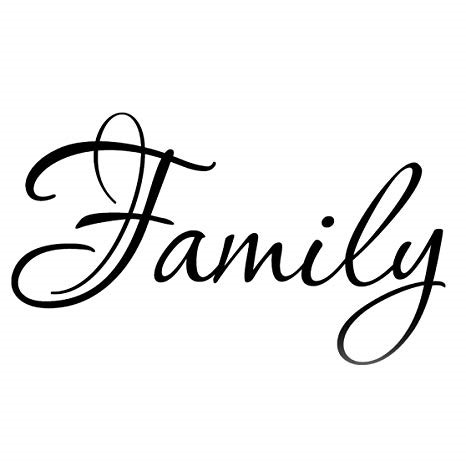If someone walked in here and offered you 20.7 billion US dollars, what would you spend it on? Even if they walked in with a paltry 37 million, what would you spend it on? Well, it seems that in 2019 it was expected that the folk in the United States would spend about 20.7 billion and we Canadians would spend in the neighbourhood of 37 million dollars on – does this picture give you a hint?
Valentine’s Day – in order to celebrate love and friendship – a day to show our appreciation of the people who are personally important to us. One day – when all kinds of money is spent on things like jewelry, an evening out, flowers, candy, gift cards and greeting cards – to show our love and appreciation to that someone special in our lives. What is really interesting is that the amount being spent continues to increase each year despite survey results in which 82 per cent of respondents agreed that Valentine’s Day is a “commercial enterprise.” Because you see, over eighty percent of Canadians still plan to celebrate Valentine’s day, with more than half including their children and other family members in their plans.
Now, I could say a lot more about Valentine’s Day. I could wonder who really benefits from the excessive amounts spent on that one day – an average of over $200 per person? I could wonder why showing “our love and appreciation to that someone special in our lives” is restricted to one day? What happens the rest of the year? I could wonder if we have expectations of what we “should” receive on Valentine’s Day – and what happens if we don’t?
I could wonder why in this day and age, Canadian men are more generous than Canadian women on Valentine’s Day, with men spending more than double. I could wonder how people react to ads that say “This Valentine’s Day, show loved ones how much you care by showing them the world with the (name of airline) gift card.” Do we evaluate how much others care for us by the amount of money they spend on us?
I could talk about how some claim that Valentine’s day is celebrated in the middle of February to commemorate the anniversary of a Christian saint named Valentine from around the year 270 AD, while others claim the Christian church may have decided to place St. Valentine’s feast day in the middle of February to replace the pagan celebration of Lupercalia, a spring festival that was supposed to make women fertile. We have heard about that happening before – if you remember, in the year 350 or so, it was Pope Julius in Rome who declared Dec 25 as the date of Jesus’ birth, thereby integrating Jesus’ birth with a Roman winter solstice festival celebrating the “birthday of the unconquered Sun,” spelled SUN. But I don’t have time this morning to get into all these issues, so I will leave it up to you to reflect on what you do and why you do it in regards to Valentine’s Day. Because, you see, what I really want to talk about this morning is Family.
 Valentine’s day got hooked into this topic because it just so happens that this year Valentine’s Day is the Friday of the long weekend in February – with Monday, February 17 being called Family Day. First – a little history.
Valentine’s day got hooked into this topic because it just so happens that this year Valentine’s Day is the Friday of the long weekend in February – with Monday, February 17 being called Family Day. First – a little history.
According to Wikipedia, in New Brunswick, on September 5, 2010, while campaigning for re-election, New Brunswick Premier Shawn Graham promised to establish Family Day in his province if his Liberal Party was returned to government. But Graham did not win re-election -but the Liberals did win re-election in September 2014, and in February 2016 the Liberal Government started studying the implementation of Family Day. On April 26, 2017, Premier Brian Gallant announced that New Brunswick would become the newest province to observe Family Day, beginning on February 19, 2018. The basic purpose of Family Day is to provide a special occasion on which Canadians can celebrate family and community life and (maybe this is a more important reason?) to provide a holiday in the otherwise holiday-vacant, three-month span between New Year’s Day and Good Friday. So, this is the third year many New Brunswickers get to celebrate a long weekend in February, Family Day, an opportunity to celebrate being a family and to spend quality time with loved ones by participating in fun activities together. Do you see why I linked this with my Valentine’s Day rant? Anyway, back to family.
This morning, I would like us to think about a couple of things:
1) What is a family?
2) What if I come from a really crappy family?
Let me first address “What is a family?” Hopefully that might provide some options regarding the second question.
“Family” is a single word, with many different meanings. People have many ways of defining a family and what being a part of a family means to them. Families differ in terms of economic, cultural, social, and many other facets, it seems that what every family has in common is that the people who call it a family are making clear that those people are important in some way to the person calling them ‘family.’ If you look for a definition of family on the web you will find many different definitions and many different types of family. The Vanier Institute of the Family defines “family” as:
Any combination of two or more persons who are bound together over time by ties of mutual consent, birth and/or adoption or placement and who, together, assume responsibilities for variant combinations of some of the following:
• Physical maintenance and care of group members
• Addition of new members through procreation or adoption
• Socialization of children
• Social control of members
• Production, consumption, distribution of goods and services
• Affective nurturance – love
The Vanier Institute contends that their definition of family is deliberately broad to ensure that it captures all families and family experiences. It is a functional definition of family that focuses on relationships and roles – what families do, not what they look like.
They note that their definition of family is inclusive of diverse family structures including, but not limited to, single parents, same-sex couples, stepfamilies, married or common-law couples (with or without children), skip-generation or extended families, blended families, and more.
The Vanier Institute notes that their definition of family includes at least one relationship between an adult and another person (adult or child) – a relationship over time, which signifies that a commitment has been made.
Which brings me to the second question. What if I have a really crappy family? Well, first of all, no one that I know or have heard about, has the perfect family – regardless of what is so often portrayed in those Hallmark movies. Every family is different, and unfortunately there are some families in which horrific circumstances have existed, or continue to exist. Within the church the term often used is community of faith rather than church family – since so many people do not have good images when they hear the word “family.” However, just because your blood relatives aren’t ‘good family’ doesn’t mean that you can’t have a family, that there aren’t people who love you and care about you.
Having strong ties – to family and/or friends – has long been identified as an important part of being happy and healthy. People need people. Do you remember the video we watched near the end of November? In that video Shasta Nelson mentioned that loneliness is a number one health issue – that loneliness is at the base of every major problem.
People have a need for a relationship where they feel seen in a safe and satisfying way. She also talked about the importance of three things in a relationship –
1) positivity – making five positive statements for every negative statement,
2) consistency – seeing each other on a regular basis, and
3) vulnerability – sharing, letting people in, trusting others, talking about our history, dreams, the good and the bad that have happened in our life.
People feel loved if they feel known, and they feel known if they’ve shared themselves.
So being in relationship is important – but the question arises – Is it our family or is it our friends which are more important? Ideally, I hope we have both. However, if forced to choose which is more important, American researchers now say friendship may be more important than family – friends may be more important than family members – especially as we age. The study comes from researchers at Michigan State University. They found the importance of friendship on health and happiness grows as people get older. One reason given – people can keep the friendships that make them feel good and move on from the ones that don’t. Family, on the other hand, will always be with you. They can be helpful and enjoyable, but family can also cause troubles as I just mentioned. They can be hurtful. Friendships, he added, keep us from being lonely. But keeping a friendship for a long time takes work.
This may be good news for people who don’t have strong ties with family members. Not all of us are born into the families we need. But we all have the ability to make the friendships that we need.
And as the Vanier Institute notes in its definition of family, it’s what people do that make them a family. Therefore, their definition of family would imply that a group of friends could be a family. Many people consider their close friends as their family, because they care for them. Others may consider coworkers, community members, or other group members they are affiliated with to be family. Family can be whomever you choose to call family, whether you are related or not.– so there could be a church family, a curling family, a bridge playing family – and there are many that would consider pets — from goldfish to horses — as defining members of the family unit.
Family is not defined by biology, or marriage, or even a home. Family are the people you love and who love you back, the people you feel safe around, and the people you can count on to be there when you need them. And isn’t that what being an Affirming Congregation is all about? Rather than simply defining family by a dictionary definition, individuals should look to define a family by their own standards. You can have several families in your lifetime, even several families at once if you choose.
Regardless of how you choose to define your family unit, whether it is traditional or unique, your definition is of the family unit that works for you. As the saying goes, “Family is what you make it. “Whether made of blood relatives, friends, or pets, or a combination of these, your family can offer you the support you need to thrive.
So, as we head toward Valentine’s Day and Family Day, what are you – what are we – going to do? How are you – how are we – going to express our love? How and to whom are you – are we – going to offer support so they may thrive? How are we going to let our light shine strong and bright in every direction?
https://learningenglish.voanews.com/a/health-lifestyle-friends-or-family/3952739.html
https://www.statista.com/statistics/806151/canada-valentines-day-attitudes/
https://loanscanada.ca/money/how-do-canadians-spend-their-money-on-valentines-day/
https://valentinegiftsforher.ca/canada-valentines-day/
https://1045freshradio.ca/
https://globalnews.ca/news/6490145/valentines-day-2020-best-gifts/
https://en.wikipedia.org/wiki/Family_Day_(Canada)
https://publicholidays.net/family-day/
https://family.lovetoknow.com/about-family-values/meaning-family
https://cyberparent.com/relationships/define-family-true-meaning-family/
https://vanierinstitute.ca/definition-family/
